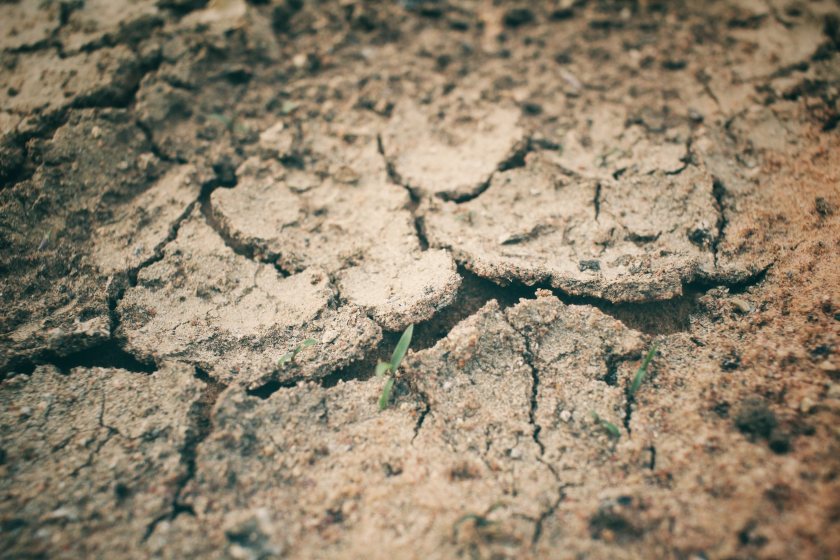Water saving urged as 'nationally significant' drought hits farms

Farmers and communities across England face mounting pressure as the National Drought Group declares the water shortage a “nationally significant” crisis.
The NDG convened today (12 August) amid a worsening picture: five regions remain officially in drought, with six more enduring prolonged dry spells.
Despite some unsettled weather in July, many rivers and reservoirs continued to fall compared with June. Last month was the fifth warmest on record, with rainstorms only masking the persistent dryness.
August has brought a return to drier conditions alongside the fourth heatwave of the summer, placing further strain on public water supplies and navigational waterways.
The NDG – comprising the Met Office, government departments, regulators, water companies, and the NFU – used today's meeting to highlight the impact on farms.
Environment Agency director of water and NDG chair, Helen Wakeham said: “The current situation is nationally significant, and we are calling on everyone to play their part and help reduce the pressure on our water environment.
"We know the challenges farmers are facing and will continue to work with them, other land users, and businesses to ensure everyone acts sustainably."
The prolonged dry weather has hit farms across England hard, with many struggling to secure enough water for crops and livestock, the NDG heard.
Reduced water availability is causing yields to fall and forcing some livestock farmers to dip into winter feed stocks early, raising concerns about rising production costs and long-term sustainability.
The NFU, which attended today's meeting, warned that ongoing shortages could have serious financial implications for farm businesses and threaten the UK’s overall food supply.
The union's vice-president Rachel Hallos said that farmers and growers continue to face extremely dry conditions, with harvest underway and crop yields proving mixed across the country.
She noted: "Some farms are reporting significant drops in yields which is financially devastating for the farm business and could have impacts for the UK’s overall harvest.
"Farming is a long-term industry and there is growing concern about the months ahead. Minimal grass growth means many livestock farmers are already tapping into winter feed stocks, raising the risk of higher production costs later in the year.
"Access to clean, reliable water is essential for food production. What’s worked well during this drought has been early, coordinated communication with stakeholders around licence restrictions and drought permits and orders and it’s crucial this continues."
She added: "To avoid the swing between extreme drought and flooding and to secure water supplies for food production, we urgently need investment in water infrastructure and a more effective planning system.”
The Met Office updated the NDG on the weather outlook, confirming drier conditions are returning.
Dr Will Lang, Met Office chief meteorologist, said: “This week is starting off warmer than of late across England and Wales with temperatures getting towards the mid-30s Celsius for some in the south.
"As we move into the second half of August there are indications of high pressure building and therefore largely settled conditions overall.
"Although dry weather is more likely, rain, showers or thunderstorms cannot be ruled out.”
Which regions are worst hit?
• Drought has been declared in: Yorkshire, Cumbria and Lancashire, Greater Manchester Merseyside and Cheshire, East Midlands, West Midlands.
• Areas in prolonged dry weather (the phase before drought) are: Northeast, Lincolnshire and Northamptonshire, East Anglia, Thames, Wessex, Solent and South Downs.
• The remaining areas are normal: Hertfordshire, London, Kent, Devon and Cornwall.








